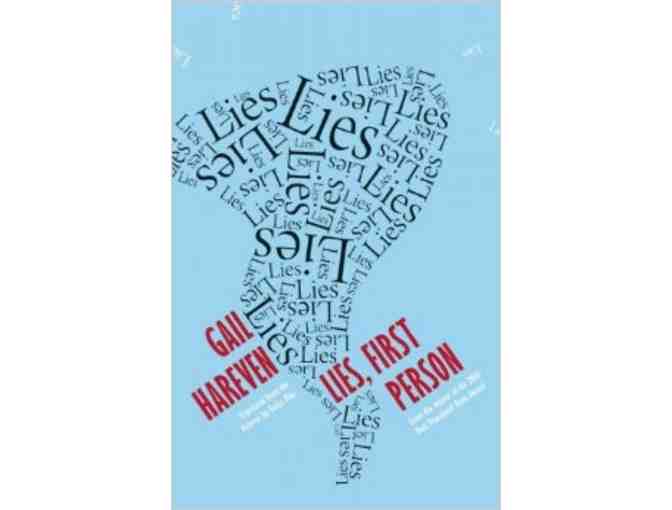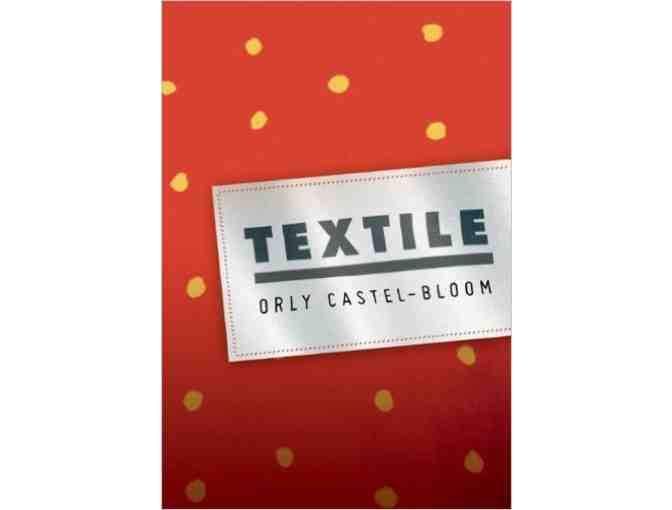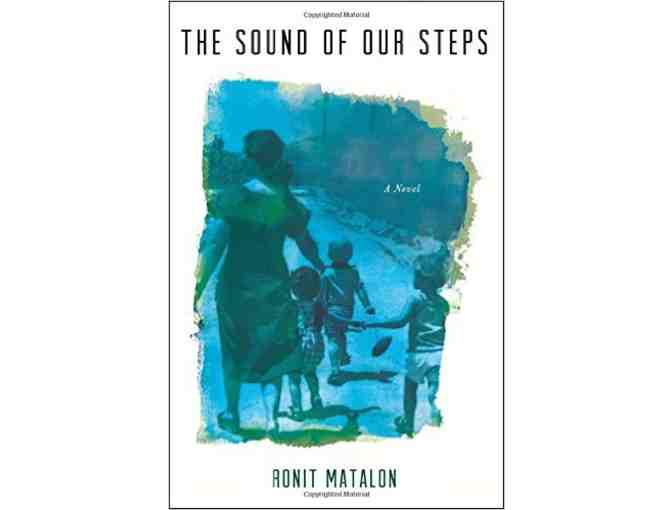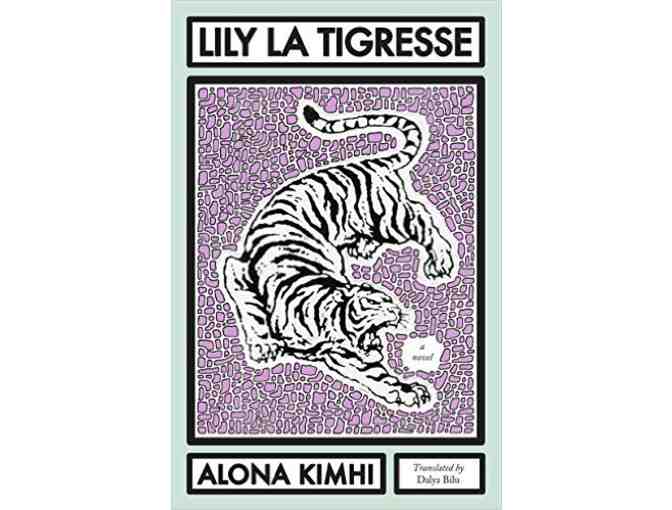Reward Yourself with 4 Israeli Feminist Novels, in English

Item Number: 199
Time Left: CLOSED



Description
Lies, First Person, by Gail Hareven.
From the 2010 winner of the Best Translated Book Award comes a harrowing, controversial novel about a woman's revenge, Jewish identity, and how to talk about Adolf Hitler in today's world.
Elinor's comfortable life—popular newspaper column, stable marriage, well-adjusted kids—is totally upended when she finds out that her estranged uncle is coming to Jerusalem to give a speech asking forgiveness for his decades-old book, Hitler, First Person.
A shocking novel that galvanized the Jewish diaspora, Hitler, First Person was Aaron Gotthilf's attempt to understand—and explain—what it would have been like to be Hitler. As if that wasn't disturbing enough, while writing this controversial novel, Gotthilf stayed in Elinor's parent's house and sexually assaulted her "slow" sister.
In the time leading up to Gotthilf's visit, Elinor will relive the reprehensible events of that time so long ago, over and over, compulsively, while building up the courage—and plan—to avenge her sister in the most conclusive way possible: by murdering Gotthilf, her own personal Hilter.
Along the way to the inevitable confrontation, Gail Hareven uses an obsessive, circular writing style to raise questions about Elinor's mental state, which in turn makes the reader question the veracity of the supposed memoir that they're reading. Is it possible that Elinor is following in her uncle's writerly footpaths, using a first-person narrative to manipulate the reader into forgiving a horrific crime?
Gail Hareven is the author of eleven novels, including The Confessions of Noa Weber, which won both the Sapir Prize for Literature and the Best Translated Book Award.
Textile, by Orly Castel-Bloom.
A wealthy Israeli family is at a precipice in their lives in this nuanced, contemporary novel. As Amanda Gruber, the matriarch of the family, undergoes an invasive cosmetic procedure, Lirit, her rebellious daughter, takes over operations at the family's pajama factory. Her brother Dael serves in the Israeli army as a sniper, while Irad, their neglectful father, a genius scientist, travels to the United States to conduct research on flak jackets. Each family member is pulled in conflicting directions, forced to examine their contentious relationships to one another. With surprising humor, Textile details the gradual disintegration of a family strained by distance and the corrosive effects of consumerism and militarism.
Orly Castel-Bloom is considered a leading voice in Hebrew literature today. Her postmodern classicDolly City has been included in UNESCO's Collection of Representative Works, and was nominated in 2007 as one of the ten most important books since the creation of the state of Israel. She has received the Tel Aviv Foundation Award, the Alterman Prize for Innovation, the Prime Minister's Prize three times (1994, 2001, 2011), the Newman Prize, the French WIZO Prize for Human Parts, and the Leah Goldberg Prize. Her books have been translated into eleven languages.
Lily La Tigresse, by Alona Kimhi.
Alona Kimhi's Lily La Tigresse takes place in present-day Israel. Lily, the protagonist and narrator, is funny and yet poetic. Early on in the story, the reader finds her on a plane, where she meets an interesting boy named Taro, who introduces her to young love. The two lose touch for a while, but reunite one fateful night, in a hotel room. When Lily flies back to Tel Aviv she finds a crate with a tiger cub inside, sent to her by Taro, who works for a zoo. The tiger, which acts as Taro's way of returning to Israel with Lily, changes her life. Lily's friend Ninush, a Russian prostitute who is in a physically abusive relationship, helps take care of the tiger cub. So does their older friend, Michaela, a mother of four who drives a taxi. As Lily gets bored with her daily routine—working as a dental hygienist and failing to find true love as a woman—she goes out and has a sex-filled night. She goes to bars, lures men in, and sleeps with them in the shadiest of public places. This one-night adventure turns into a sexual bender. Maybe she secretly wants Ninush's life, maybe she pines for Taro. In any case, the chapter of copulation and other unusual scenes make this book a tremendous read, filled with heartache, sweetness, and plenty of laughs. It is a story of a girl trying to find her way. It is a story of three women navigating intense relationships, their careers, and the care of a tiger cub.
The Sound of Our Steps, by Ronit Matalon.
Gorgeously observed and emotionally powerful, The Sound of Our Steps is an inventive novel of immigration and exile from Ronit Matalon, a major voice in contemporary Israeli fiction
In the beginning there was Lucette, who is the mother to three children--Sammy, a gentle giant, almost blind, but a genius with locks; Corinne, a flighty beauty who cannot keep a job; and "the child," an afterthought, who strives to make sense of her fractured Egyptian-Jewish immigrant family. Lucette's children would like a kinder, warmer home, but what they have is a government-issued concrete box, out in the thorns and sand on the outskirts of Tel Aviv; and their mother, hard-worn and hardscrabble, who cleans homes by night and makes school lunches by day. Lucette quarrels with everybody, speaks only Arabic and French, is scared only of snakes, and is as likely to lock her children out as to take in a stray dog.
The child recounts her years in Lucette's house, where Israel's wars do not intrude and hold no interest. She puzzles at the mysteries of her home, why Maurice, her father, a bitter revolutionary, makes only rare appearances. And why her mother rebuffs the kind rabbi whose home she cleans in his desire to adopt her. Always watching, the child comes to fill the holes with conjecture and story.
In a masterful accumulation of short, dense scenes, by turns sensual, violent, and darkly humorous, The Sound of Our Steps questions the virtue of a family bound only by necessity, and suggests that displacement may not lead to a better life, but perhaps to art.
Special Instructions
A $7.50 charge will be added for shipping and handling to any USA address. Inquire about shipping outside the USA.